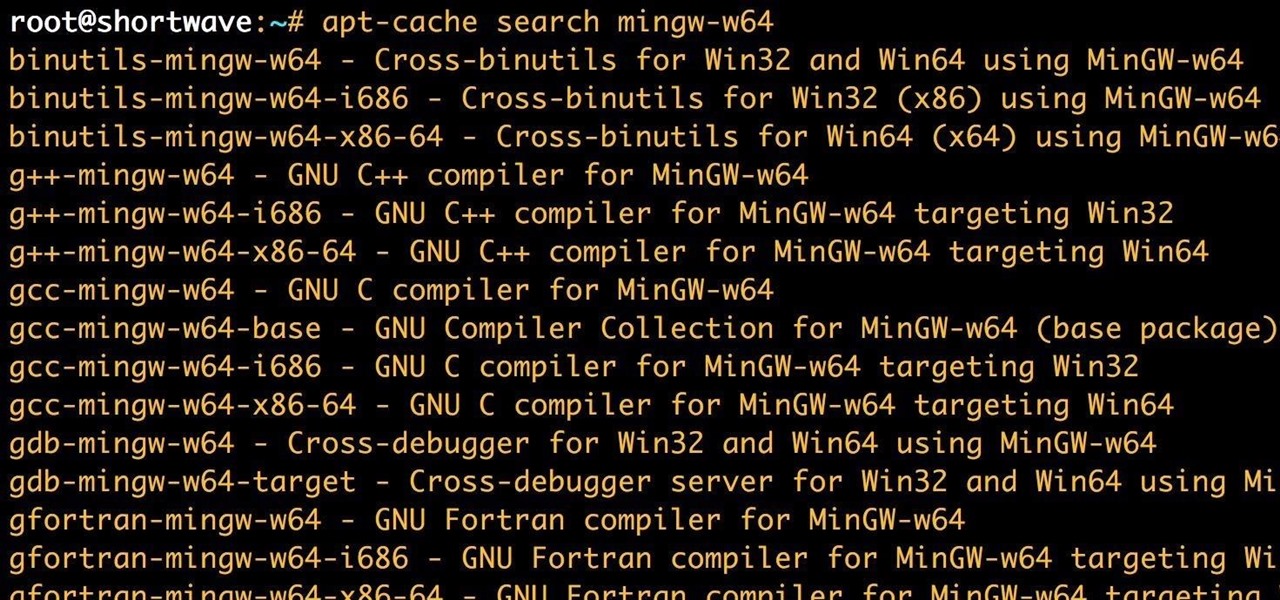

POSIX Threads (pthreads) support (including the possibility to enable C++11 thread-related functionality in GCC's libstdc++).MinGW-w64 provides a more complete Win32 API implementation, including: For many reasons, the lead developer and co-founder of the MinGW-w64 project, Kai Tietz, decided not to attempt further cooperation with MinGW. It was first submitted to the original MinGW project, but refused under suspicion of using non-public or proprietary information. In 2008, OneVision then donated the code to Kai Tietz, one of its lead developers, under the condition that it remains open source. In 2005, Mingw-w64 was created by OneVision Software under clean room design principles, since the original MinGW project was not prompt on updating its code base, including the inclusion of several key new APIs and the much needed 64-bit support. Mingw-w64 can generate 32 bit and 64-bit executables for x86 under the target names i686-w64-mingw32 and x86_64-w64-mingw32.

Mingw-w64 can be run either on the native Microsoft Windows platform, cross-hosted on Linux (or other Unix), or "cross-native" on MSYS2 or Cygwin. Mingw-w64 includes a port of the GNU Compiler Collection (GCC), GNU Binutils for Windows ( assembler, linker, archive manager), a set of freely distributable Windows specific header files and static import libraries which enable the use of the Windows API, a Windows native build of the GNU Project's GNU Debugger, and miscellaneous utilities. It was forked in 2005–2010 from MinGW ( Minimalist GNU for Windows). Mingw-w64 is a free and open source software development environment to create Microsoft Windows PE applications. Public domain (headers), GNU General Public License (compiler and toolchain), Zope Public License


 0 kommentar(er)
0 kommentar(er)
